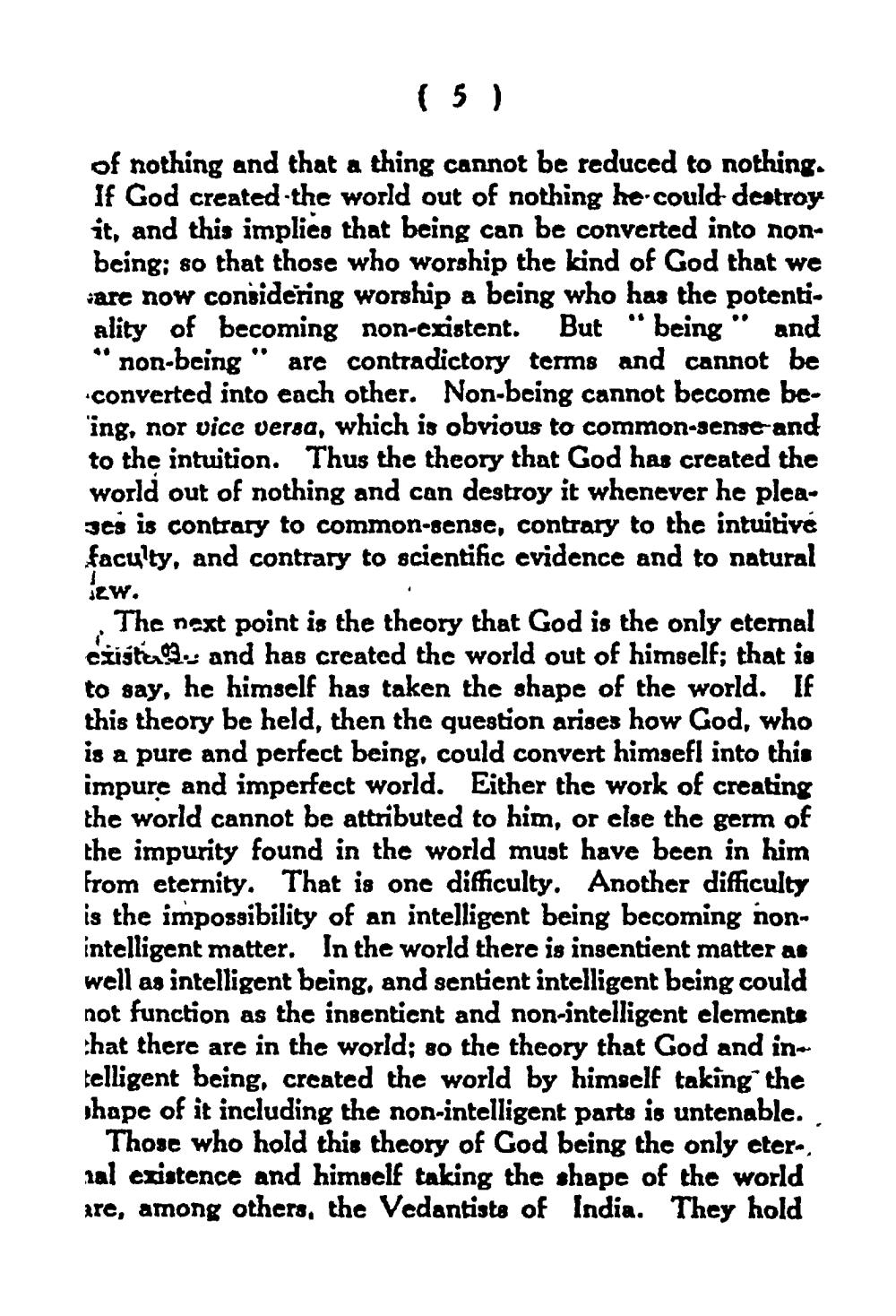Book Title: Jainism Not an Atheisam Author(s): Herbert Warren Publisher: Herbert Warren View full book textPage 9
________________ (5) of nothing and that a thing cannot be reduced to nothing. If God created the world out of nothing he could destroy it, and this implies that being can be converted into nonbeing; so that those who worship the kind of God that we are now considering worship a being who has the potentiality of becoming non-cxistent. But "being " and "non-being " are contradictory terms and cannot be .converted into each other. Non-being cannot become being, nor vice versa, which is obvious to common-sense and to the intuition. Thus the theory that God has created the world out of nothing and can destroy it whenever he plea3es is contrary to common-sense, contrary to the intuitive faculty, and contrary to scientific evidence and to natural izw. . The next point is the theory that God is the only eternal ciistus, and has created the world out of himself; that is to say, he himself has taken the shape of the world. If this theory be held, then the question arises how God, who is a pure and perfect being, could convert himsefl into this impure and imperfect world. Either the work of creating the world cannot be attributed to him, or else the germ of the impurity found in the world must have been in him from eternity. That is one difficulty. Another difficulty is the impossibility of an intelligent being becoming nonintelligent matter. In the world there is insentient matter as well as intelligent being, and sentient intelligent being could not function as the insentient and non-intelligent elements :hat there are in the world; so the theory that God and intelligent being, created the world by himself taking the shape of it including the non-intelligent parts is untenable. , Those who hold this theory of God being the only eter-, aal existence and himself taking the shape of the world are, among others, the Vedantists of India. They holdPage Navigation
1 ... 7 8 9 10 11 12 13 14 15 16 17 18 19 20 21 22 23 24 25 26 27 28 29 30 31 32 33 34 35 36 37
